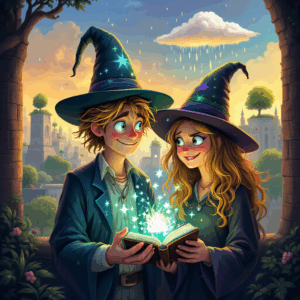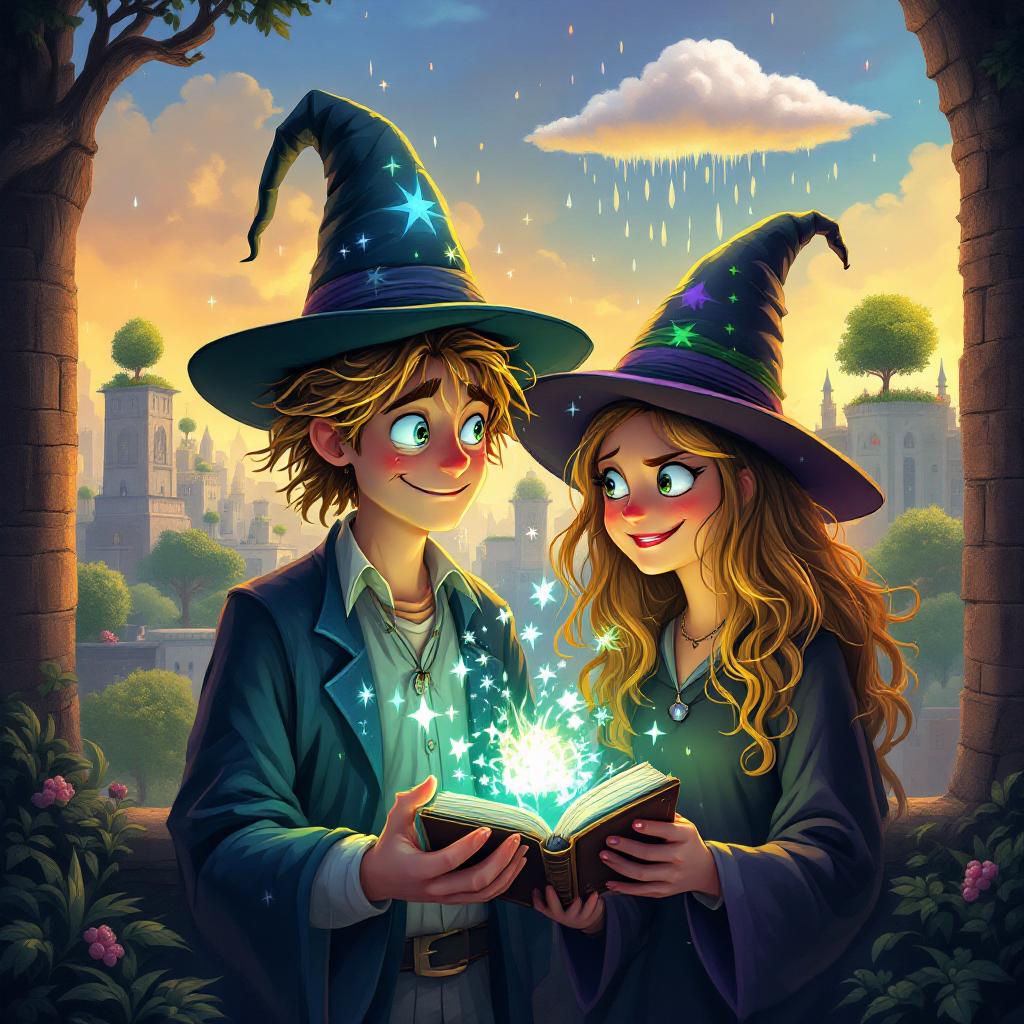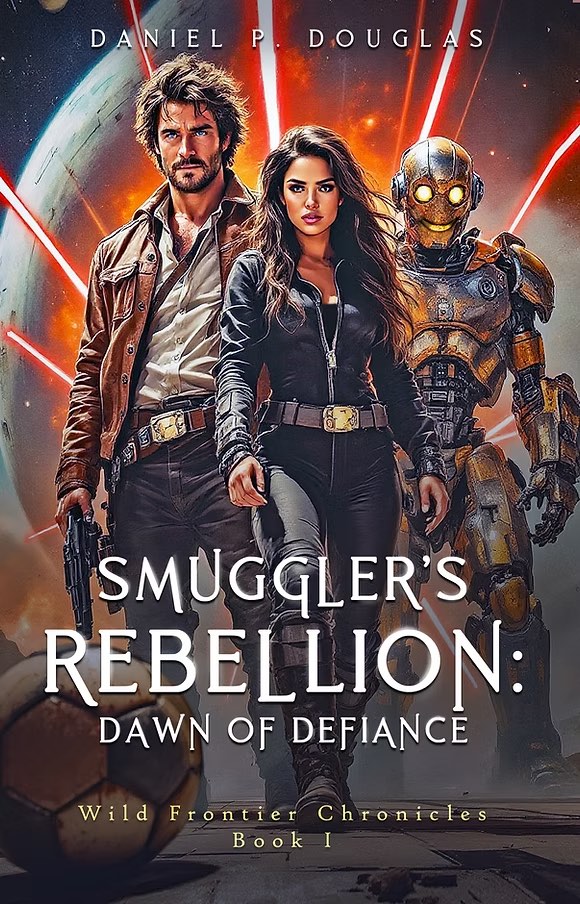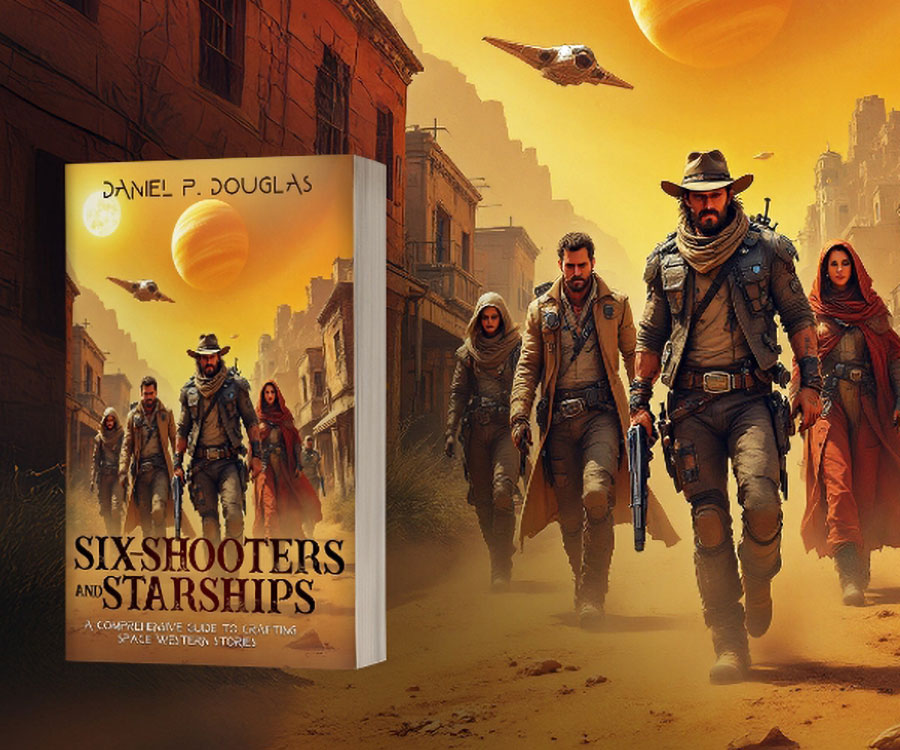Finding the Sweet Spot Between Spell Casting and Silliness in the Short Story “The Magical Misfire” and Beyond
 When Magic Meets Mischief
When Magic Meets Mischief
In a world of dragons, wizards, and spell books, sometimes the funniest magic is simply human nature.
That’s what I discovered while writing my short story “The Magical Misfire,” a tale of Finnegan Fizzlebottom, a well-meaning but disaster-prone wizard whose eagerness far exceeds his abilities. What began as a straightforward fantasy short story quickly evolved into something more when I realized that magical mishaps opened up endless possibilities for humor.
Finding the Funny in the Fantastic
Comedy in fantasy writing isn’t new—giants like Terry Pratchett and Douglas Adams paved this road long before I stumbled onto it. But finding my own voice in this niche presented unique challenges. How do you make magic funny without undermining its wonder? How do you create characters who are comically flawed but still worth rooting for?
For me, the answer lay in the familiar. We’ve all experienced Finnegan moments—those times when our enthusiasm outpaced our expertise, when we tried to impress and ended up making spectacular messes instead. By grounding the comedy in recognizable human experiences, the story’s more outlandish elements (singing teapot cats, anyone?) become more relatable rather than merely absurd.
Types of Humor in Enchantium
“The Magical Misfire” employs several varieties of humor:
- Situational comedy: Finnegan’s accidental transformation of the city’s cats into singing teapots creates escalating chaos that’s funny precisely because it spirals beyond his control.
- Character-based humor: Finnegan’s earnest try-hard energy contrasts wonderfully with Melody’s chaotic genius and Griselda’s perpetual exasperation. These personality clashes generate humor naturally.
- Wordplay and modern references: From “Merlin’s saggy lederhosen” to comparing Enchantium to “Amazon and a Renaissance Faire having a baby raised by Vegas showgirls,” unexpected juxtapositions of magical and modern elements create surprise—the foundation of much comedy.
The Balancing Act
Perhaps the trickiest aspect of writing humorous fantasy is maintaining balance. Lean too heavily into comedy, and your world loses its sense of wonder and stakes. Focus too much on magical systems and worldbuilding, and the humor feels tacked on rather than integral.
I found that the key is integration—the magic should generate the humor, and sometimes, the humor should shape the magic. For instance, the personality-distinct heads of the three-headed dog Kevin, Carl, and Karen emerged from wondering what would happen if a traditionally frightening fantasy creature had very human, very relatable quirks.
Lessons Learned Along the Way
If you’re considering adding humor to your own fantasy writing, here are some insights from my journey:
- Character flaws are comedy gold—but only if there’s heart underneath. Readers will laugh at Finnegan’s mistakes because they can tell he’s trying his best.
- Don’t explain the joke. Trust readers to catch the humor without highlighting it with “this is funny because…” explanations.
- Ground fantastical humor in relatable experiences. The magic of Enchantium may be beyond our reach, but the embarrassment of making mistakes in front of others is universal.
- Use humor to disarm readers before emotional moments. Some of the most touching scenes in “The Magical Misfire” come immediately after humorous ones—this contrast heightens both emotions.
- Remember that different readers find different things funny. Layer various types of humor throughout your story to give everyone something to enjoy.
Why We Need Magical Laughter
In retrospect, I think my short story “The Magical Misfire” emerged when it did because I needed to write something joyful. Fantasy has always offered escape, but humorous fantasy provides something even more valuable—perspective. It reminds us that even in a world where anything is possible, people (and wizards) still trip over their own feet, still care too much about what others think, and still find friendship in unexpected places.
If Finnegan’s catastrophic magical adventures bring a smile to readers’ faces or, better yet, help them laugh at their own mishaps, then that’s a kind of magic I’m proud to have created.
You can read “The Magical Misfire” in its entirety on Reedsy at https://blog.reedsy.com/short-story/xobxaa/ – I’d be delighted to hear which magical mishap makes you laugh the most!
What about you? Do you have a favorite funny moment from “The Magical Misfire,” or are there other humorous fantasy stories you’d recommend? I’d love to hear about them in the comments below.





